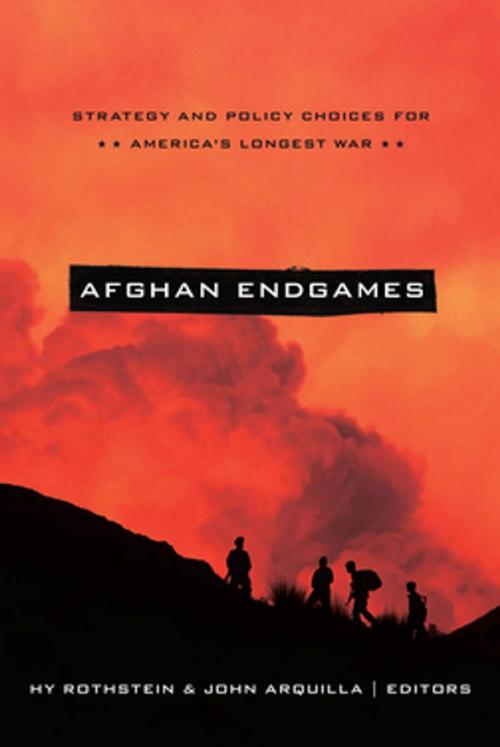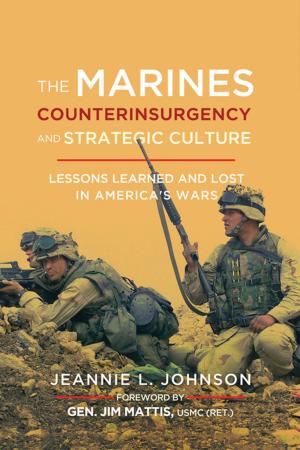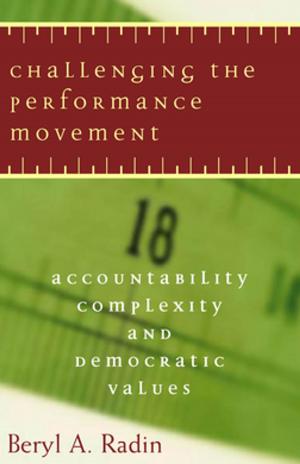Afghan Endgames
Strategy and Policy Choices for America's Longest War
Nonfiction, Social & Cultural Studies, Political Science, International, International Security, International Relations, History| Author: | ISBN: | 9781589019096 | |
| Publisher: | Georgetown University Press | Publication: | January 6, 2012 |
| Imprint: | Georgetown University Press | Language: | English |
| Author: | |
| ISBN: | 9781589019096 |
| Publisher: | Georgetown University Press |
| Publication: | January 6, 2012 |
| Imprint: | Georgetown University Press |
| Language: | English |
The United States and its allies have been fighting the Taliban and al-Qaeda in Afghanistan for a decade in a war that either side could still win. While a gradual drawdown has begun, significant numbers of US combat troops will remain in Afghanistan until at least 2014, perhaps longer, depending on the situation on the ground and the outcome of the US presidential election in 2012. Given the realities of the Taliban’s persistence and the desire of US policymakers—and the public—to find a way out, what can and should be the goals of the US and its allies in Afghanistan?
Afghan Endgames brings together some of the finest minds in the fields of history, strategy, anthropology, ethics, and mass communications to provide a clear, balanced, and comprehensive assessment of the alternatives for restoring peace and stability to Afghanistan. Presenting a range of options—from immediate withdrawal of all coalition forces to the maintenance of an open-ended, but greatly reduced military presence—the contributors weigh the many costs, risks, and benefits of each alternative.
This important book boldly pursues several strands of thought suggesting that a strong, legitimate central government is far from likely to emerge in Kabul; that fewer coalition forces, used in creative ways, may have better effects on the ground than a larger, more conventional presence; and that, even though Pakistan should not be pushed too hard, so as to avoid sparking social chaos there, Afghanistan’s other neighbors can and should be encouraged to become more actively involved. The volume’s editors conclude that while there may never be complete peace in Afghanistan, a self-sustaining security system able to restore order swiftly in the wake of violence is attainable.
The United States and its allies have been fighting the Taliban and al-Qaeda in Afghanistan for a decade in a war that either side could still win. While a gradual drawdown has begun, significant numbers of US combat troops will remain in Afghanistan until at least 2014, perhaps longer, depending on the situation on the ground and the outcome of the US presidential election in 2012. Given the realities of the Taliban’s persistence and the desire of US policymakers—and the public—to find a way out, what can and should be the goals of the US and its allies in Afghanistan?
Afghan Endgames brings together some of the finest minds in the fields of history, strategy, anthropology, ethics, and mass communications to provide a clear, balanced, and comprehensive assessment of the alternatives for restoring peace and stability to Afghanistan. Presenting a range of options—from immediate withdrawal of all coalition forces to the maintenance of an open-ended, but greatly reduced military presence—the contributors weigh the many costs, risks, and benefits of each alternative.
This important book boldly pursues several strands of thought suggesting that a strong, legitimate central government is far from likely to emerge in Kabul; that fewer coalition forces, used in creative ways, may have better effects on the ground than a larger, more conventional presence; and that, even though Pakistan should not be pushed too hard, so as to avoid sparking social chaos there, Afghanistan’s other neighbors can and should be encouraged to become more actively involved. The volume’s editors conclude that while there may never be complete peace in Afghanistan, a self-sustaining security system able to restore order swiftly in the wake of violence is attainable.















